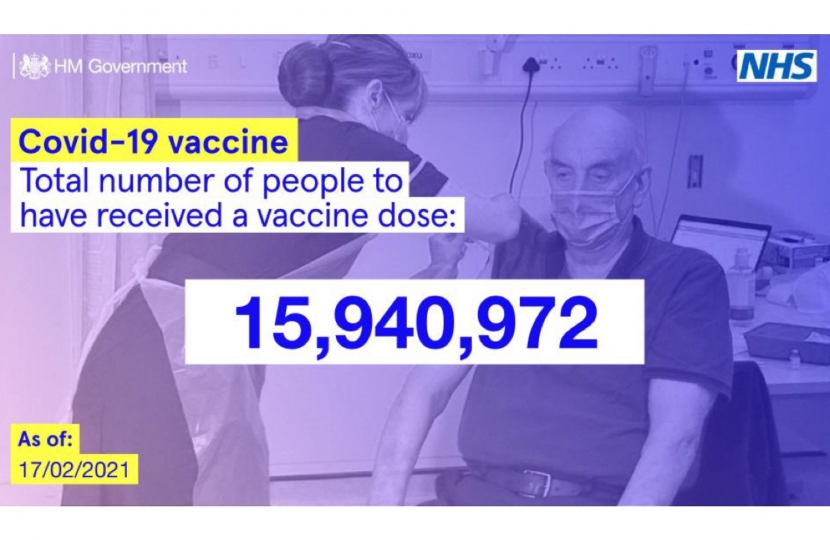
Over 15.9 million people have received a vaccine so far across the United Kingdom. We have now offered a vaccine to everyone in the top four priority groups as we move towards vaccinating the next two priority groups. In less than 10 weeks we have vaccinated 15 million people – that is one in every four adults. We aim to offer a vaccine to all priority cohorts 1 to 9 by May and all adults by September.
As large numbers of people from at risk groups are vaccinated, we will be able to gather the evidence to prove the impact on infection rates, hospitalisation and reduced deaths. If successful, this should in time lead to a reassessment of current restrictions. Until then it is essential that everyone continues to stay at home, to protect the NHS and save lives.
Infections in England have fallen significantly since January
New figures released today, from the REACT-1 study into COVID-19 in England, show that infections have fallen significantly since the last report in January – proving that national restrictions are working in bringing infections down.
These findings show encouraging signs infections are now heading in the right direction across the country, but we must not drop our guard. While cases and hospital admissions remain high it is vital we all remain vigilant and follow the rules as our historic vaccination rollout continues at pace. We do not yet know whether being vaccinated stops someone from passing the virus on to others so we must remain vigilant.
We urge everyone to continue to stay at home - remember hands, face, space – and get your jab when you receive your invite.
For more information on the ‘February interim findings from COVID-19 REACT-1 study’, please visit: https://www.gov.uk/government/news/february-interim-findings-from-covid-19-react-1-study-published.
Funding to help tackle the lasting effects of long COVID
Today the Government have announced £18.5 million in funding to help tackle the lasting effects of long COVID, by funding new research to help us better understand the causes, symptoms and treatment of the condition.
We are acutely aware of the lasting and debilitating impact long COVID can have on people of all ages, irrespective of the extent of the initial symptoms – with 1 in 10 experiencing fatigue, headaches and breathlessness can affect people for months after their infection.
This investment will fund ambitious and comprehensive research programmes across the UK to help understand and address the physical and mental health effects of COVID-19. Through this research, we will build on our knowledge and develop the best treatments to help people recover from COVID-19 in the long term.
The UK continues to be at the forefront of scientific research and innovation when it comes to the treatment of COVID-19 - and with this funding, we will better understand long COVID and how to help get its sufferers limit its effect on their daily life.
Reopening of schools
As the Prime Minister said, re-opening schools must be our national priority and the first sign of normality beginning to return should be pupils going back to their classrooms. As we have achieved our target of vaccinating everyone in the four most vulnerable groups with their first dose by 15 February – then those groups will have developed immunity from the virus by about three weeks later, that is by 8 March. The Government hopes it will therefore be safe to commence the reopening of schools from Monday 8 March, with other economic and social restrictions being removed thereafter as and when the data permits.
Rules governing the wearing of masks in schools will be tightened when pupils return to classrooms in England. Masks will be compulsory outside classroom bubbles in secondary schools where social distancing is not possible. Previously it has been left to the discretion of head teachers.
The Government will also be introducing mass testing to manage outbreaks of the virus at schools. The use of repeat lateral flow tests, with the first three tests for pupils conducted in school when they return after lockdown, before switching to home tests, will be most likely implemented.
The Department for Education is planning announcements on schools next week, starting with the Prime Minister’s roadmap out of lockdown announcement on Monday 22 February, with details on how schools will reopen from 8 March, followed by details on catch-up, next summer’s assessments and COVID testing.
